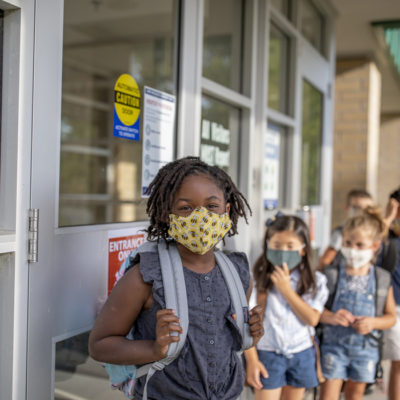This resource is provided by ACSA Partner4Purpose Lozano Smith.
Effective March 1, 2023, local agencies will no longer have the option to rely on the COVID-19 proclaimed state of emergency to conduct fully remote legislative body meetings pursuant to Assembly Bill (AB) 361.
Background
On March 4, 2020, Governor Newsom declared a state of emergency in California due to the COVID-19 pandemic. He also signed various executive orders temporarily allowing legislative bodies of local agencies to conduct meetings virtually, relaxing the traditional teleconferencing requirements under the Brown Act. Prior to these executive orders, if a local agency elected to use teleconferencing for a public meeting, the Brown Act required: 1) a quorum of the legislative body to participate from within the boundaries of the agency’s jurisdiction, (2) the public agency to post notice of each teleconference location, and (3) that the public be allowed to address the legislative body from each teleconference location.
On September 15, 2021, the Governor signed AB 361, amending the Brown Act to allow legislative bodies of local agencies to continue conducting public meetings remotely during a state of emergency, so long as certain requirements are met. (See 2021 Client News Brief Number 26.) Most legislative bodies that have met remotely over the last year, have done so using the procedures established under AB 361.
The End of the COVID-19 State of Emergency
AB 361 is in effect only until January 1, 2024, and importantly, only if there is a proclaimed state of emergency and either (1) state or local officials have imposed or recommended measures to promote social distancing, or (2) due to the state of emergency, meeting in person would present imminent risk to the health or safety of attendees. In October 2021, and re-affirmed on January 30, 2023, Governor Newsom announced the state of emergency necessitated by the COVID-19 pandemic will end on February 28, 2023. With no proclaimed state of emergency available to support one of the required findings, legislative bodies will no longer have the option of meeting virtually under AB 361.
Beginning March 1, 2023, legislative bodies will have two options for attending meetings remotely:
- Using the traditional teleconferencing rules in the Brown Act; or
- Under AB 2449, which allows legislative body members to attend meetings from a remote location for “just cause” or in emergency situations, subject to certain requirements. More information on AB 2449 may be found in our 2022 Client News Brief Number 48.
However, if, between March 1, 2023, and January 1, 2024, the Governor declares another state of emergency for any reason that directly impacts safely meeting in person, legislative bodies may once again be able to utilize the remote option under AB 361—but only until January 1, 2024, when AB 361 sunsets.
Takeaways
After February 28, 2023, local agencies may no longer rely on the COVID-19 state of emergency to conduct meetings virtually under AB 361. Local agencies must then look to either the traditional teleconferencing option under the Brown Act or AB 2449 if a legislative body or member wishes to attend a meeting remotely. If a new state of emergency is proclaimed prior to January 1, 2024, and local agencies are able to make the required findings based on such emergency, they may resume remote board meetings under AB 361.
If you have any questions about AB 361 or about Brown Act and open meeting requirements in general, please contact the authors of this Client News Brief or an attorney at one of our eight offices located statewide. You can also subscribe to our podcasts, follow us on Facebook, Twitter and LinkedIn or download our mobile app.









Leave a Comment